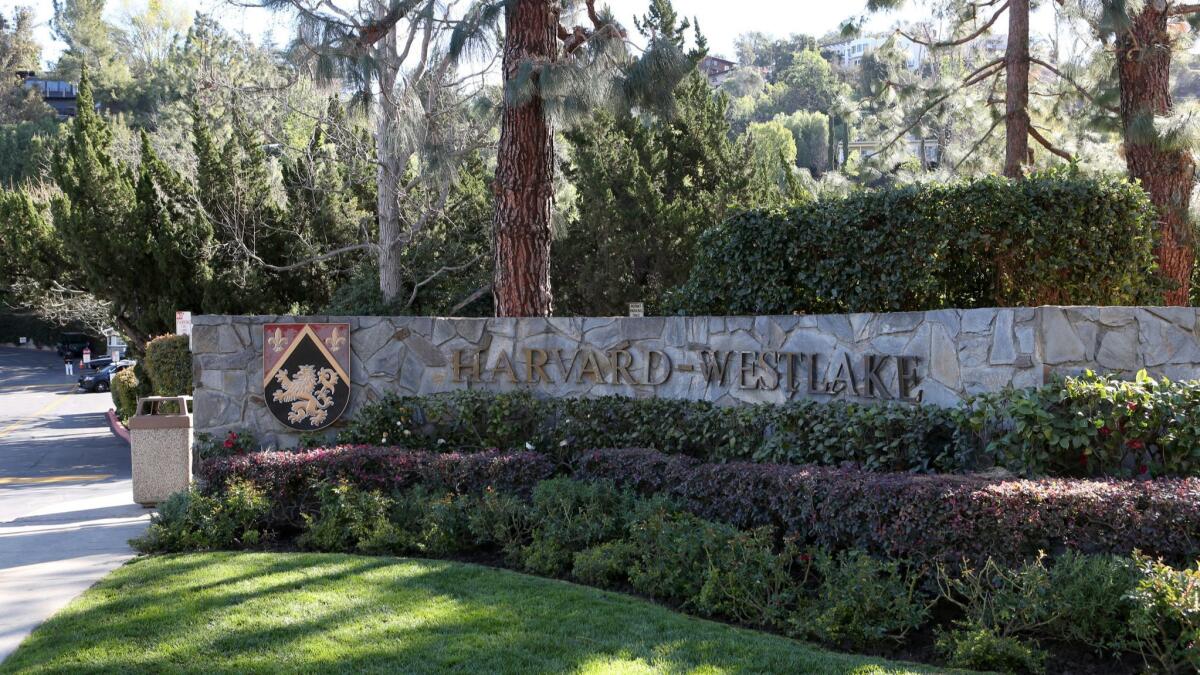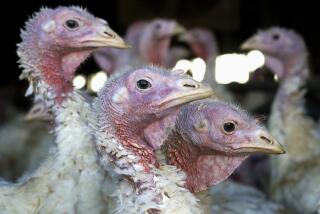30 Harvard-Westlake students diagnosed with whooping cough amid wider outbreak

- Share via
Thirty students at the private Harvard-Westlake School have recently fallen ill with whooping cough, part of a larger outbreak across Los Angeles County that officials are struggling to contain.
The surge of cases at Harvard-Westlake spans the Studio City and Beverly Crest campuses of the school, where 1,600 students are enrolled.
For the record:
3:00 p.m. Feb. 27, 2019An earlier version of this article erroneously said that the Harvard-Westlake student newspaper reported that county health officials sent an email to parents about the whooping cough outbreak. All emails to parents were sent by school staff, not county officials.
Whooping cough, also known as pertussis, is highly contagious and spread by coughing, sneezing or simply breathing air around an infected person. Young children are vaccinated against pertussis and then given a booster dose around age 11 or 12.
L.A. County health officials sent an email to doctors last week warning of three clusters of pertussis in different parts of the county. The advisory stated that 50 people had been sickened in the recent wave.
“The number of reported clusters of pertussis cases has risen in 11- to 18-year-olds who share classrooms, carpools/transportation, or extracurricular activities,” the Feb. 19 advisory said.
Doctors were advised to look out for the symptoms of pertussis, including the signature cough. The name “whooping cough” comes from the noise people make when they gasp for air after coughing for several minutes straight.
As pertussis cases began to climb at Harvard-Westlake earlier this month, the campus custodial team upped their cleaning and disinfecting efforts to try to prevent further spread of the illness, said school spokesman Ari Engelberg.
School administrators also began sending sick students home until a doctor could say the child had been treated for pertussis or tested negative for it, he said.
“We’ve actually had students who have been sent home and told: ‘You cannot come back because you’re exhibiting symptoms, and we need proof that you don’t have pertussis,’” Engelberg said.
The pertussis booster shot, known as Tdap, is required to enter 7th grade. But proof of the vaccine was not sufficient to grant students re-entry to school.
People who have had the vaccine can still get sick. The booster shot protects 70% of people from whooping cough in the first year after receiving it and 40% four years after receiving it, according to the U.S. Centers for Disease Control and Prevention.
Whooping cough tends to be most dangerous in babies, killing one out of every 100 infants infected, according to the CDC.
The disease is milder in teens and adults, especially if they have been vaccinated. Still, 5% percent need to be hospitalized and 4% fracture a rib from coughing so hard, according to the CDC.
The outbreak was reported earlier by the Hollywood Reporter.
Harvard-Westlake’s student newspaper, the Chronicle, reported last week that county health officials were considering limiting activities between the two Harvard-Westlake campuses, one of which is for grades 7 through 9 and the other 10 through 12. Some students take a shuttle between campuses after school for sports practices and other activities.
Engelberg, however, said he did not believe that idea was on the table.
People typically develop symptoms five to 10 days after coming into contact with the bacteria Bordetella pertussis. The infection is contagious for more than two weeks, even if the patient begins antibiotics. Students should not return to school or other group activities until they have completed five days of antibiotics, experts say.
Harvard-Westlake typically has high vaccination rates among its students. Over the past several years, roughly 98% of 7th graders had all of their shots, according to state data.
The school did not submit its seventh grade vaccination data to the state for the 2017-18 school year, the most recent year for which state data is available. Engelberg said he believes that was an administrative error and is working to fix it.
“We have a really high vaccination rate in our community, which is something we’re very grateful for,” Engelberg said.
Twitter: @skarlamangla
More to Read
Sign up for Essential California
The most important California stories and recommendations in your inbox every morning.
You may occasionally receive promotional content from the Los Angeles Times.











